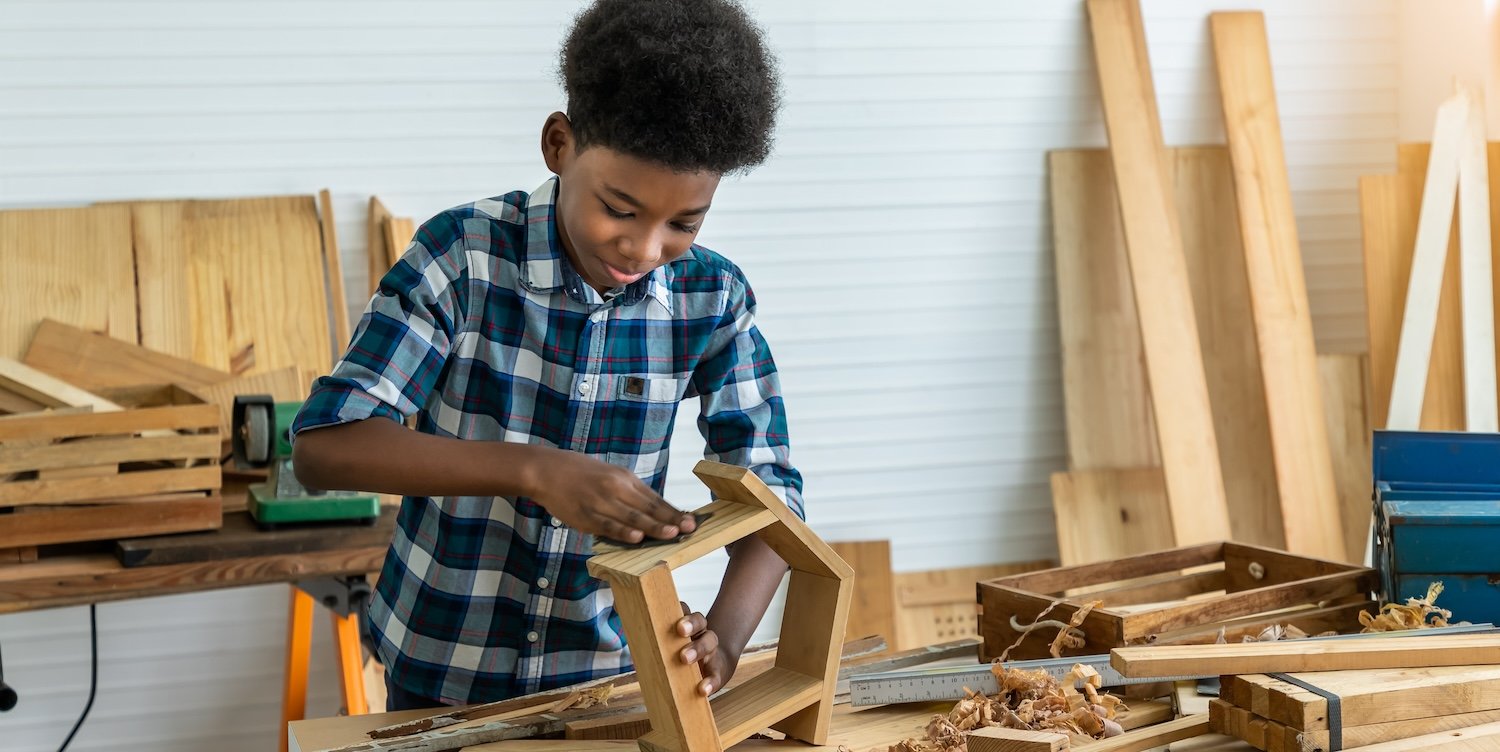Importance of Male Mentorship
%202.jpeg)
Importance of Male Mentorship
Growing up, each of us had our own experiences, challenges, and dreams that made our path unique, but one element we all share is that someone helped guide us along the way. These people gave us support, a shoulder to cry on, and inspiration to persevere. These role models emerge from every corner of our lives, often in ways we don’t expect.
My two older sisters, aunts, elementary school teachers, college professors, and of course my mother, have had a fundamental impact on who I am today. Yet, there is something uniquely powerful about the importance of positive male role models to our growing boys.
At times, boys dismiss our repeated inquiries about their day or ignore our reminders about the task they need to complete, but they see and hear us more often than we assume. They notice how a teacher navigates a classroom conflict; they recognize how their father responds to stress; and they observe how a coach handles a loss. These ordinary moments become the foundation for how boys understand strength, compassion, responsibility and all the other layers there are to being a man. This makes positive male mentorship not just beneficial, but critical.
Every man has the opportunity to influence future generations of men through intentional guidance, or more simply, by living with integrity in full view of impressionable eyes. Meaningful relationships with male figures establish and develop authentic connection, model masculinity, build resilience, and create supportive communities that can help our boys grow into well-rounded men.
Creating and Fostering Connection
Every meaningful mentorship begins with a connection and these generally aren’t dramatic moments, but rather small, consistent gestures that foster the bonds for a young man. A drama teacher acknowledging the effort a student puts into rehearsal, an older brother taking the time to listen to his sibling’s new and unfamiliar interest, or even a neighbor remembering an upcoming birthday, all of these moments communicate, “I see you.”
Each of these occurrences is a step towards a boy feeling safe and valued. It’s important that boys understand that the ones guiding them aren’t there to just simply lecture them or correct mistakes, but are genuinely invested in their lives and their pursuits. Over time, these connections create the foundations for influence where boys are not only more likely to share the hurdles they face in life, but are also more receptive to guidance.
When navigating these conversations, it’s often not about providing the boy with “the right answer” to the struggle they currently face. Sometimes it takes a quiet pause and an acknowledgement that what he is going through is challenging. Michael Reichert, a professor of psychology at University of Pennsylvania and author of How To Raise a Boy: The Power of Connection to Build Good Men writes, “When caregivers muster the willingness to simply listen and observe, without offering judgements or advice based on their own experience, it can make a world of difference to boys who are trying to develop confidence in their own judgement.” This simple act of listening shows boys that their feelings and struggles are valid, creating a space where trust grows and real guidance becomes possible.
It’s also worth noting that this connection flows both ways. Mentors will discover that their lives are enriched by the relationships they form. Small moments of laughter, vulnerability, or empathy, strengthen the bond and make the mentorship less about authority and more about shared humanity. In that space, boys don’t just hear advice, they experience what it feels like to be supported, respected, and most importantly, believed in.
Modeling Masculinity and Connection
In our society, men are portrayed with an overemphasis on emotional detachment, combativeness, and aggression, but it’s important for boys to see that those descriptions aren't the whole picture of a man. This doesn’t mean that we should universally dismiss these emotions. As a wrestling coach, these are traits that I work to develop in athletes all the time, and they are traits that have had beneficial impacts on my own life. Rather, it’s vital to understand that masculinity doesn’t have a singular definition, and the young men in our communities don’t learn from a single form of masculinity, making it more important that the men we surround our boys with demonstrate that being a man also includes empathy, accountability, and the courage to express emotion.
Mentors have the opportunity, and the responsibility, to display traits that paint a fuller picture of what it means to be man through our everyday actions. This includes behaviors such as resolving conflict with respect, apologizing when wrong, or showing compassion for others. Even something as simple as calling and checking in on a friend models the importance of male connection into adulthood. Niobe Way, a professor of developmental psychology at New York University, reveals how “boys in early adolescence express a strong desire for close, emotionally intimate friendships, but as they grow older, societal pressures cause them to suppress these feelings.”
These continued connections into manhood are critical to the well-being of not only growing boys, but to adult men as well. That’s why mentors who model connection and emotional honesty give boys permission to hold onto something they already value deeply.
Boiled down, this means we don’t need to deliver grand speeches to our boys about values. Rather, we simply need to live the values, consistently, in the presence of boys who are watching. Each of these actions sends a message, and over time, those messages accumulate into a model of manhood that boys can admire and emulate.
Building Resilience
The journey through boyhood is filled with celebrations and achievements, but more often includes setbacks, failures, conflicted friendships, and general disappointments. Too often, boys are told that resilience through these challenging moments consists of “toughing it out” or “being a man about it” rather than learning how to process and recover from the challenges they face. Mentors play a crucial role in guiding this process. When a trusted male figure reframes failure as an opportunity for growth or expresses vulnerability in his own shortcomings, boys begin to see that mistakes aren’t the end of the road, but rather a stepping stone towards maturity. A positive role model acknowledges the effort in the process, not only the outcome, with affirming words and actions.
I have witnessed many instances of these “letdowns” while coaching wrestling, but the same framework could apply in the classroom or at home. More than in most sports, defeat in wrestling carries an extra sting, there’s no one else to share the blame, and the losses are not only physically but mentally exhausting. Each boy processes defeat differently, but as a coach, it’s essential to recognize those moments as opportunities for growth and respond with support. A tough loss isn’t the end of the world, but in that moment of raw emotion, it can certainly feel like it to the boy. When addressing the boy, I lead with identifying something positive to acknowledge, then reinforce the importance of bouncing back after defeat, and address areas of growth generally using, “we” instead of, “you” statements. The boy knows I am going to hold him to a high standard, but he also knows he’s not alone in this endeavor, he has his coaches and teammates in his corner. Every time a boy steps back onto the mat after a loss and gives his full effort, he’s not just improving his wrestling, he’s building the foundation of resilience that will serve him in many facets of life.
Over time, the result is a boy, when faced with a challenge, who doesn’t retreat into avoidance or blame others for his circumstances, but instead relies on the confidence in his ability to face life’s hurdles. That sense of resilience, cultivated in safe and supportive relationships, equips boys to navigate not only adolescence but the complexities of adulthood with courage and adaptability.
Expanding the Circle
No single mentor can meet every need, and that’s actually a strength. Boys benefit when they are surrounded by a variety of male role models. Brothers, fathers, grandfathers, uncles, teachers, coaches, community leaders, and older peers, each contribute different lessons and perspectives to our boys. This ensures that boys see different paths of navigating life, and, in turn, they can understand that there isn’t just one way to grow into manhood. Additionally, it emphasizes the importance of each man to reflect on how they are seen by the younger men who surround them. Continuing to expand the circle of influence also encourages collaboration between the home and community. Parents who invite coaches, teachers, and other mentors into the conversation about their son’s development create a network of accountability and encouragement.
In the end, it is essential that boys learn that they are not alone, and that the men around them believe in their potential. The message for boys is unmistakable; manhood isn’t a solitary pursuit, but a shared journey marked by guidance, encouragement and support. If we construct this atmosphere for our boys, the impact will reverberate throughout their lives and future generations.
The conversation continues on the Boys Education Series podcast! Listen on Apple Podcasts and Spotify. Subscribe on your favorite streaming platform.
Matt McCarter has worked in education for thirteen years in private, public, and charter schools in the Cleveland-area, Memphis, Denver, and Chengdu, China. He earned his bachelor's degree in history and secondary education from the University of Illinois, where he was also a member of the varsity wrestling team. Matt currently serves as Grade Eight Dean and teaches Global Dynamics at University School, where he also coaches high school wrestling. He holds the Thompson Chair for Exceptional Faculty Leadership and is pursuing a graduate degree in Educational Leadership at Cleveland State University.


